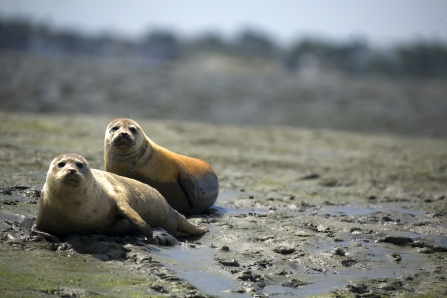It’s springtime, and all along our coast the relative quiet of the colder months is giving way to a flurry of wildlife activity. Take a stroll on our beaches at this time of year and you’re perfectly placed to see rapidly growing annual seaweeds, while beneath the waves the pace of life is quickening for our marine species as the weather grows warmer.
Right now our waters are teeming with the larvae of common starfish, which will spend 87 days feeding on plankton in the water column before settling on the seabed. This species is so fertile – a 14 cm common starfish can produce up to 2.5 million eggs at a time – that if every larva survived to adulthood they might well take over our shorelines!
Sea bass are also returning to their summer feeding grounds along the coast, having spent the winter months at their spawning grounds offshore to the west. Throughout spring, their newly hatched larvae will drift inshore to join our local bass nursery areas and remain there for up to five years before venturing more widely.
Species like these make the Solent a fascinating and valuable place, but sadly it is under increasing pressure from threats such as plastic pollution and climate change. Luckily, there’s an easy and accessible way that you can help to protect our marine environment, and that’s by getting involved in something called citizen science.


